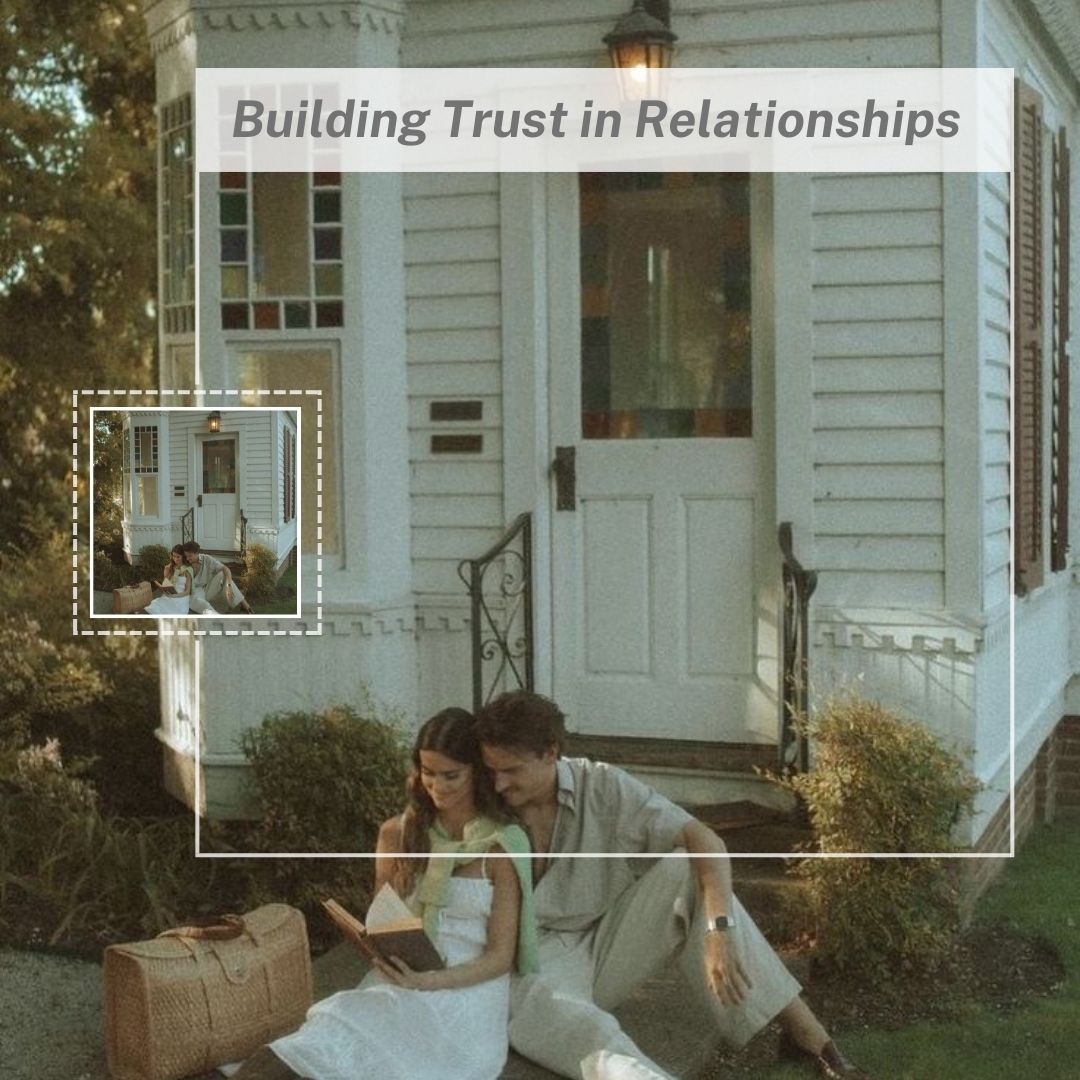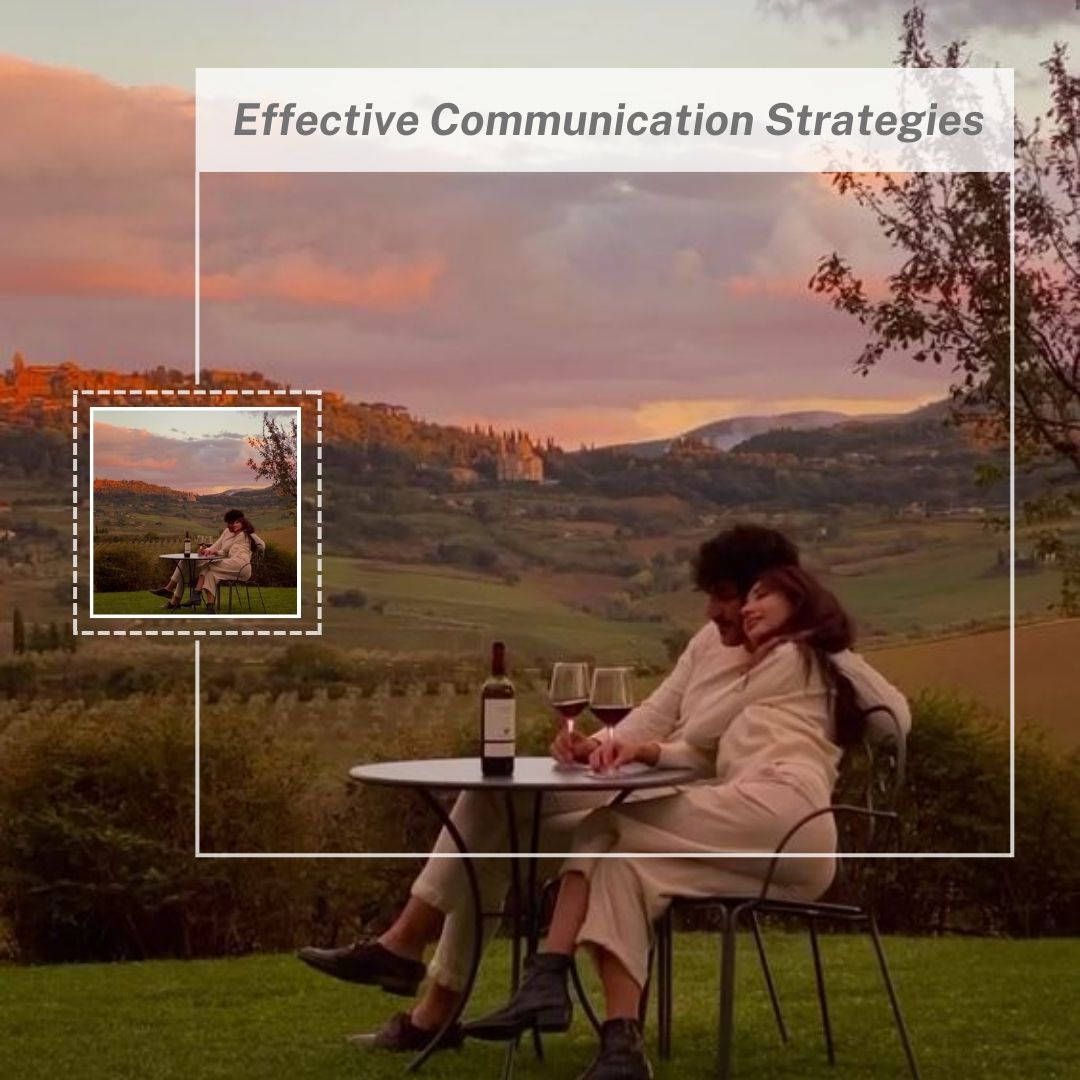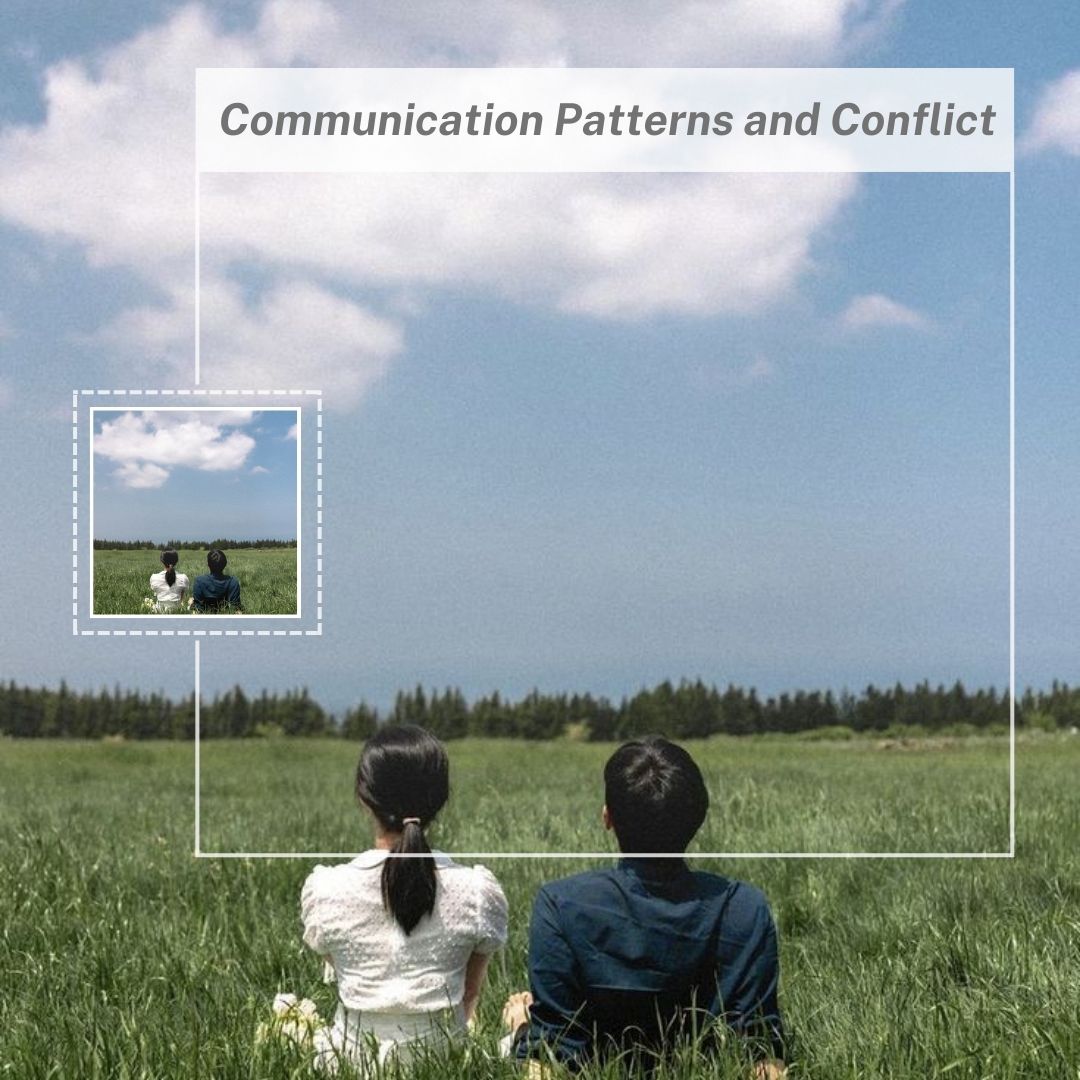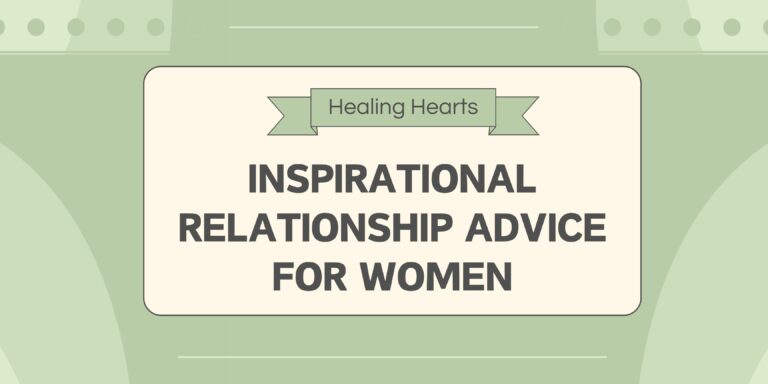Building Trust in Relationships

Trust is the glue in any relationship, holding it all together while love and intimacy blossom. For those who’ve taken the rough route via betrayal or emotional abuse, patching up trust seems like climbing a mountain. But hey, it’s a must for healing and stepping forward.
Importance of Trust
Trust is the strong backbone of any relationship. It’s the thing that lets people be themselves, share their secrets, and talk openly without bracing for judgment or deception. Sabrina Romanoff, PsyD, a psychologist you’d want to listen to, points out that trust helps partners relax enough to pour out their deepest thoughts and feelings.
Trust and Relationship Negativity
No trust, big problems. Lack of trust acts like a fungus, spreading insecurity, conflicts, anxiety, all that yucky stuff in a relationship. Without trust, fights blow up, and “I thought you meant” moments become a regular guest. Say, if one partner always feels under the magnifying glass, resentment brews like a bad cup of coffee—and so does emotional detachment.
But sprinkle some trust and watch the magic! Partners start believing in each other’s good vibes and are more forgiving. Trust gets people rooting for each other, lighting up a healthy vibe between them. Zoom into more wisdom by visiting love and relationship advice.
Positivity Through Trust
Talk it out; trust follows. That is, keeping the chat channels open paves the way for partners to air their worries in such an open environment, they’re practically besties. Dr. John Gottman, the brain behind the Gottman Institute, says healthy chat habits like really listening and speaking in “I” mode (instead of pointing fingers) lay the tracks for a successful ride together.
| Communication Technique | What’s It About? |
|---|---|
| Active Listening | Actually focusing, getting, and thoughtfully replying to what’s being said. |
| Eye Contact | The non-verbal high-five showing attention and honest intentions. |
| “I” Statements | Letting out feelings without loaded accusations (like saying, “I feel hurt when…”). |
Nailing good talk habits ramps up intimacy and shrinks unnecessary overthinking, leading to fewer tiffs and better make-ups. For extra talking pointers, peek at relationship advice quotes and best relationship advice.
Getting the hang of these trust bits can guide folks toward awesome and strong relationships.
Effective Communication Strategies

We all know good chit-chat is the glue that holds folks together, especially for those on the mend from past relationship hiccups. Let’s unpack the art of open communication, squabble sorting, and keeping the chat game strong.
Open Communication
Being able to speak freely and honestly is like the secret sauce for trust in any relationship. When people talk openly, they can sort out issues and build that rock-solid foundation everyone dreams of.
- Active Listening: Give your full attention, make eye contact, and respond thoughtfully—give ’em the floor.
- Using “I” Statements: Share your feelings without pointing fingers. Say, “I feel hurt when…” and ditch the “You always…” blame game.
- Sharing Positives and Negatives: Chat about the good and bad without fear. This way, the relationship can level up.
- Transparent Communication: Spill what’s bugging you or what’s going well; it boosts closeness and nips conflicts in the bud, as Dr. John Gottman of the Gottman Institute teaches. For more on getting close through talk, peep best relationship advice.
Open chatter lets everyone express how they feel, making emotional wellness and understanding bloom.
Conflict Resolution
Smoothly ironing out disagreements is the game plan for keeping the peace. Here’s the playbook:
- Expressing Thoughts and Feelings: Clearly and kindly state what’s bothering you and what you want to be different.
- Understanding Boundaries: Check with your partner about your boundaries and ask about theirs. Listen up and honor each other’s lines.
- Addressing Root Issues: Tiffs often sprout from unmet needs. While hashing out an argument, see if there’s a bigger picture to deal with.
- Empathy: Put yourself in your partner’s shoes—this helps keep fights fair. Get more on seeing eye to eye with our relationship advice quotes.
These steps help clear up what’s expected, cut down on guesswork, and tighten the bond between partners.
Healthy Communication Patterns
Creating stable communication habits means keeping the positivity flowing consistently. Here’s how to keep things upbeat:
- Routine Check-ins: Regularly chat about how things are going—what’s working, what could be boosted.
- Non-Verbal Cues: Watch out for those subtle signals like body language and facial expressions; sometimes, they say it all.
- Avoiding Negative Patterns: Ditch criticism, contempt, defensiveness, and stonewalling—these “Four Horsemen,” as Gottman says, can wreck a relationship.
| Communication Pattern | Description | Impact |
|---|---|---|
| Active Listening | Fully engages in listening | Builds trust |
| “I” Statements | Expresses personal feelings without blame | Reduces defensiveness |
| Regular Check-ins | Periodic relationship discussions | Promotes transparency |
| Non-Verbal Cues | Observing body language | Enhances understanding |
Keeping communication patterns healthy creates a supportive, loving environment. For more insights, mosey over to love and relationship advice.
Good talking is the backbone of happy relationships. By opening up, getting savvy with conflict resolution, and sticking to positive habits, partners can handle any storm and come out stronger, more connected.
Addressing Unmet Needs

Figuring out what you need and haven’t been getting is like finding a key to keep things happy and healthy in your relationships. When someone feels overlooked, those nagging feelings of being left out or anxious can start causing trouble in paradise.
Understanding Unmet Needs
When someone feels like they’re not getting what they hoped for, unmet needs pop up. Whether it’s a hug needed, some real heart-to-heart talks, or just knowing someone’s got your back, unmet needs can feel like an itch you can’t scratch. Putting a finger on what’s missing or making you feel meh is step one before diving into a chat with that special someone.
Here’s a peek at some unmet needs that tend to create bumps in relationships:
| What We Need | What Happens If We Don’t Get It |
|---|---|
| Emotional Support | Feelings of loneliness and insignificance |
| Physical Affection | Disconnection and frustration |
| Communication | Misunderstanding and conflict |
Knowing what needs a little TLC can help put together a plan to tackle ’em head-on. If you want more ways to keep love in tip-top shape, check out our best relationship advice.
Communication Without Blame
Talkin’ about what’s missing is key, but nobody wants to feel like they’re the villain in their own story. When you chat about unmet needs, make it about the feels, not failures. This paves the way for a heart-to-heart and keeps the peace.
Here’s how to keep the blame game out of the chat:
- Drop those “I feel” bombs: This lets you share your feels without pointing fingers.
- Example: “I feel a bit off when we don’t hang out.”
- Spell out exactly what you need: Be crystal clear, no guessing games.
- Example: “I could really use a little extra TLC when stress hits.”
- Team up: Get your partner in on cooking up some solutions.
- Example: “Think we can figure out a way to make us both feel good?”
Putting these in action opens up lanes for some real talk. Getting it out there takes honest chats, feeling each other out, and being on the same page about what you both want.
For more juice on keeping the convo flowin’, peek at our posts on relationship advice quotes and love and relationship advice.
By spotting what’s been hiding under the rug and speaking up about it without a finger-pointing fest, you and your partner can tighten those love strings and enjoy a more satisfying relationship.
Setting Healthy Boundaries

Figuring out healthy boundaries is like finding that sweet spot in maintaining strong and rewarding relationships. They help folks connect better, steer clear of unhealthy vibes, and improve happiness — whether it’s with your partner, family, buddies, or folks at work.
Why Boundaries Matter
Boundaries are about keeping your mental and physical health in check while preserving your identity. They show what works and what doesn’t in interactions. When you set and respect boundaries, you’re less likely to fall into toxic traps, and you end up with cozier, happier connections.
Healthy boundaries can:
- Pull folks closer together
- Boost your confidence
- Make life just feel better
- Keep you away from unhealthy ties
In love relationships, it’s good to be curious about how your partner feels about your boundaries. Check if they seem fair to them and make sure you honor their thoughts and feelings too.
Types of Boundaries
There are all sorts of boundaries that match different parts of life. Knowing the difference among them can help you keep the harmony in your relationships.
| Boundary Type | Description |
|---|---|
| Physical Boundaries | It’s all about personal space and touchy-feely stuff (e.g., choosing a handshake over a hug). |
| Sexual Boundaries | It’s about what’s okay or not in intimacy and consent (e.g., checking if it’s cool before getting intimate). |
| Emotional Boundaries | Guarding your emotional goodies by not oversharing too soon. |
| Material/Financial Boundaries | Rules about lending out your things or money (e.g., having a clear policy on what’s off-limits). |
| Time Boundaries | Balancing your time for what you need without losing your cool (e.g., setting aside “me-time” without distractions). |
Boundaries at work can be a game-changer too. Letting work spill into personal space leaves you worn out and bummed out. By setting clear job boundaries, you’ll feel like the boss of your life and more content.
Curious for more on keeping relationships strong or need a dose of wisdom from quotes that might hit home? Check out our take on relationship advice for couples and explore relationship advice quotes that might just speak to your heart.
Rebuilding Trust After Betrayal

Fixing trust in a relationship after someone drops the ball isn’t a walk in the park, but it can be done. It takes a lot of time, truthfulness, and consistent work to bring back that connection and closeness between two people. Knowing the path ahead can offer some peace and direction when things feel heavy and messy.
Bring on the Time and Truth
Time and truthfulness are the secret sauce for piecing together a shattered bond. Trust doesn’t magically reappear overnight and needs both folks to buckle up for a long journey with open chats and true-blue efforts.
Time: Fixing trust isn’t like a fast food drive-thru. Both need to allow space and time to patch things up. The heart doesn’t heal with a snap—a rushed patch job can just make the wounds hurt more. Giving each other breathing room and realizing that healing is like a marathon, not a sprint, can make the rough patch a bit smoother.
Truthfulness: Keeping it real with communication is a must. After someone’s been let down, they want to know things will be straight-up from now on. Encouraging talks about what’s going on inside, spooky feelings, and all those concerns. Dr. John Gottman points out that trust is more about what people actually do than what they say, making every action count in earning back trust.
Sparking Connection and Closeness
Once time and truth are on track, the focus should shift to upping the connection and closeness between both people. Building something deeper brings back love and closeness—key ingredients for fixing trust.
Let It All Out: Being open-hearted and sharing those shaky parts can help each person get a grip on what’s happening in each other’s minds. Dr. Gottman says that showing tenderness can bring back love and build up the relationship’s strength.
Talking Things Through: Solid communication skills are a game-changer. Using gentle approaches, statements that start with “I feel…”, and making those good vibes frequent can make chat sessions more positive. Check out our piece on where to start with good communication for more.
| Winning Tactics | What’s It Mean? |
|---|---|
| Start Soft | Chat without pointing fingers. |
| “I” Feelings | Share emotions without blame. (“I feel hurt when…”) |
| Show Appreciation | Bigging up little wins and saying thanks. |
Calm-Down Methods: Knowing how to keep those emotions steady during blow-ups is key. Practicing calming down, owning up to mistakes, and showing some compassion can make for a calmer emotional atmosphere. For more, see our guide on keeping the peace in relationships.
By zeroing in on time, truthfulness, and building that emotional connection, lovers can make their way towards mending their hearts and putting trust back on solid ground. With these moves, blended with top-notch chats and showing vulnerability, bonds that seemed smashed beyond repair can find new strength. Seeking more comfort and insight? Dive into relationship wisdom to gather courage during this healing journey.
Red Flags in Relationships

Keeping an eye out for red flags in relationships is a big deal when it comes to emotional health and staying safe. A couple of heavy hitters to watch for are power struggles and getting too heated in arguments.
Control Issues
Control issues often start off sneaky, like they’re wearing an invisibility cloak, but can slowly grow into a real problem. Some moves to watch out for:
- Trying to tell you who you should or shouldn’t hang out with.
- Nudging you to put them first above everything else.
- Cutting down on your hangouts with loved ones.
These actions aren’t just annoying. They’re shouting a warning that things could get toxic. People who face these kinds of boundaries often find themselves drained and less cheerful. Being able to set solid boundaries, even at work, gives us a boost and protects our peace of mind.
Control freaks love to mess with your personal space and can leave a mark on your mental well-being. Feelings like stress, loneliness, and anxiety might move in if you’re with a controlling partner. Noticing these behaviors? It’s time to reach out for help and draw a line in the sand to keep your sanity intact. To learn more about keeping love-and-life balanced, hop over to our best relationship advice page.
Aggressiveness in Arguments
Watch out for aggressive antics during disagreements. In a healthy bond, folks should treat each other with respect, even when things get tense. But some people might flip the switch to full-on aggression or resort to personal attacks when tempers flare.
Signs someone’s going overboard in a squabble include:
- Throwing insults or belittling words.
- Dropping cuss bombs or name-calling.
- Elevating their volume to yelling.
Persistent aggression from a partner can hint at bigger problems. Everyone deserves to feel secure, not attacked, during a conflict. Staying level-headed and keeping respect on tap helps solve disputes in a healthy way. For a crash course in better talking skills, check out our article on healthy communication patterns.
Spotting these warning signs and addressing them can lay the groundwork for stronger, more caring relationships. Always put your health first and reach out for backup when you need it. For some comforting quotes, head over to our relationship advice quotes.
The Role of Vulnerability

Let’s chat about vulnerability—it’s got a big part to play in patching up and keeping our connections with others healthy. This bit digs into how laying your fears and insecurities on the table can rebuild trust and bring folks closer.
Expressing Fears and Insecurities
Opening up is essential for trust. But if you’ve had a rough go, like a bad breakup or growing up in a turbulent home, sharing your inner fears can seem downright scary. However, spilling your guts can actually tighten the bond between folks.
While trusting is something we’re born with, life has its way of making us guard our hearts. Dr. John Gottman talks about trust being an action— it’s what people do, not just what they say. This idea shows that trust is a skill you grow after it’s been shattered, allowing you to dip your toes back into trusting again eventually.
If you’re hungry for more on trust-building, a peek at our best relationship advice might be what you need.
Restoring Love and Intimacy
Picking up the pieces after trust takes a hit calls for patience, honesty, and a whole lot of openness. Sharing your jitters and worries lets you step into each other’s shoes. Vulnerability here acts like a bridge to fix a connection that feels a bit off.
John Gottman, a big name in marriage research, talks about something called the “Four Horsemen” of communication. These baddies—criticism, defensiveness, stonewalling, and contempt— can really mess up a relationship. Contempt, especially, is like relationship poison, upping the divorce risk and lowering health markers.
Knowing what to dodge helps you steer clear of these traps. Keen on diving deeper into good communication? Our relationship advice quotes could offer some nuggets of wisdom.
Getting real and talking about what’s bugging you is the key to moving past old pains and sewing up a snug, close-knit bond. It’s a must for anyone on the hunt for solid relationship advice for women.
By weaving these strategies into your fabric, you set up a snug and caring place that nourishes affection and reliance on one another. For more on shoring up relationships, check out our love and relationship advice.
Communication Patterns and Conflict

John Gottman’s Findings
Dr. John Gottman, who started the Gottman Institute, dug deep into how we chat in our relationships. He learned that solid communication can boost a relationship by cutting back on overthinking, building closeness, and easing those pesky conflicts. But hold on—just talking nicely doesn’t always mean folks are gonna be happy together. A study in the Journal of Marriage and Family shows that how often you chat, your personalities, and how stressed you feel also matter when it comes to being satisfied in relationships.
Gottman figured out some bad communication habits that often spell trouble:
- Criticism: It’s like a personal attack on your partner’s whole being.
- Defensiveness: This is when they fire back at you in a conflict.
- Stonewalling: The ol’ silent treatment, basically.
- Contempt: Acting all high and mighty.
These behaviors can make partners feel like they’re talking to a wall and leave them on the hunt for relationship advice for couples to help break these not-so-healthy cycles.
Strategies for Effective Communication
To give your relationship chats a makeover, try these handy tips aimed at boosting understanding and connection:
- Active Listening
- Actually pay attention when the other person talks.
- Walk in their shoes for a minute and get what they’re feeling.
- Avoid Judgments
- Use “I” messages to chat about feelings without pointing fingers.
- Zero in on solving the problem, not bashing your partner’s character.
- Kindness Over Winning
- Go for the fair resolution instead of just winning the argument.
- Keep it kind, even when agreeing to disagree.
- Identify Attachment Styles
- Figure out your and your partner’s attachment styles to better tweak your communication game.
- Be Present
- Embrace the moment emotionally, it shows you’re sincere and can strengthen the bond.
With these moves, folks can shift to better communication styles, setting the stage for lasting happiness together. For more nuggets of wisdom, dive into relationship advice quotes and best relationship advice.
Red flags for bad communication to keep in check include:
- Criticism: Constant griping.
- Defensiveness: Always needing to defend yourself.
- Stonewalling: Clamming up instead of speaking your mind.
- Misunderstanding: Feeling like you’re on different planets communication-wise.
To up your communication game and boost your love life, try to keep it classy and dodge the negative chatter. Feel free to snoop around our section on love and relationship advice for additional help.
